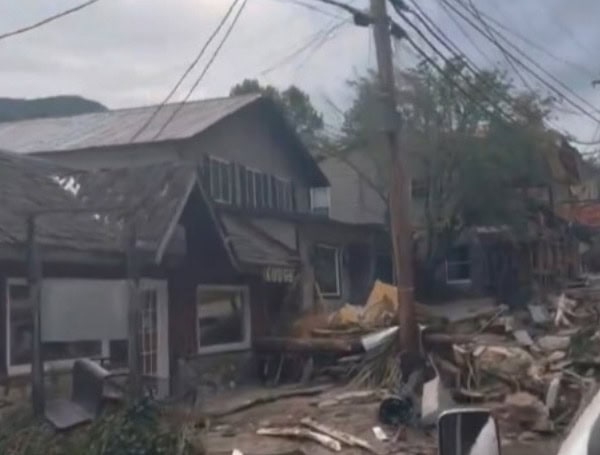One week after Hurricane Helene ravaged the Southeast, the death toll has surpassed 200, with the majority of fatalities occurring in North Carolina. Search and rescue teams are still working to reach isolated communities in the western part of the state, where catastrophic flooding destroyed roads and bridges.
President Joe Biden visited North Carolina on Wednesday, pledging federal support for the recovery effort. “The United States has your back,” he assured emergency managers. The Department of Defense has deployed 1,000 soldiers to assist with the delivery of food, water, and other essential supplies.
Read: AccuWeather Warns Of Potential Tropical Threat To Florida Following Hurricane Helene’s Devastation
While power has been largely restored in Florida, where Helene made landfall as a Category 4 hurricane, the focus has shifted to North Carolina, where the Asheville area was particularly hard hit. Floodwaters destroyed homes, businesses, and critical infrastructure, leaving many stranded.
Buncombe County, which includes Asheville, has reported the highest number of deaths. County officials are working to determine the exact number of missing persons, with many still unaccounted for. Volunteers are going door-to-door to check on residents and distribute care packages.
Read: FEMA Faces Funding Shortfall As Hurricane Season Continues
Harrowing stories of survival are emerging, including dozens of people rescued from the roof of a flooded hospital. A temporary water contact advisory has been issued for several rivers in western North Carolina due to compromised wastewater treatment plants and damaged sewer lines.
In Georgia, at least 33 people were killed, including a mother and her infant twins who died when a tree fell on their mobile home. Atlanta experienced its first-ever Flash Flood Emergency due to record rainfall.
Helene is now the second-deadliest hurricane to hit the mainland U.S. in the past 55 years, surpassed only by Hurricane Katrina in 2005. The storm’s impact has been particularly devastating in North Carolina, where it has exceeded the destruction caused by the “Great Flood of 1916”.
Please make a small donation to the Tampa Free Press to help sustain independent journalism. Your contribution enables us to continue delivering high-quality, local, and national news coverage.
Android Users: Download our free app to stay up-to-date on the latest news.
Connect with us: Follow the Tampa Free Press on Facebook and Twitter for breaking news and updates.
Sign up: Subscribe to our free newsletter for a curated selection of top stories delivered straight to your inbox.


